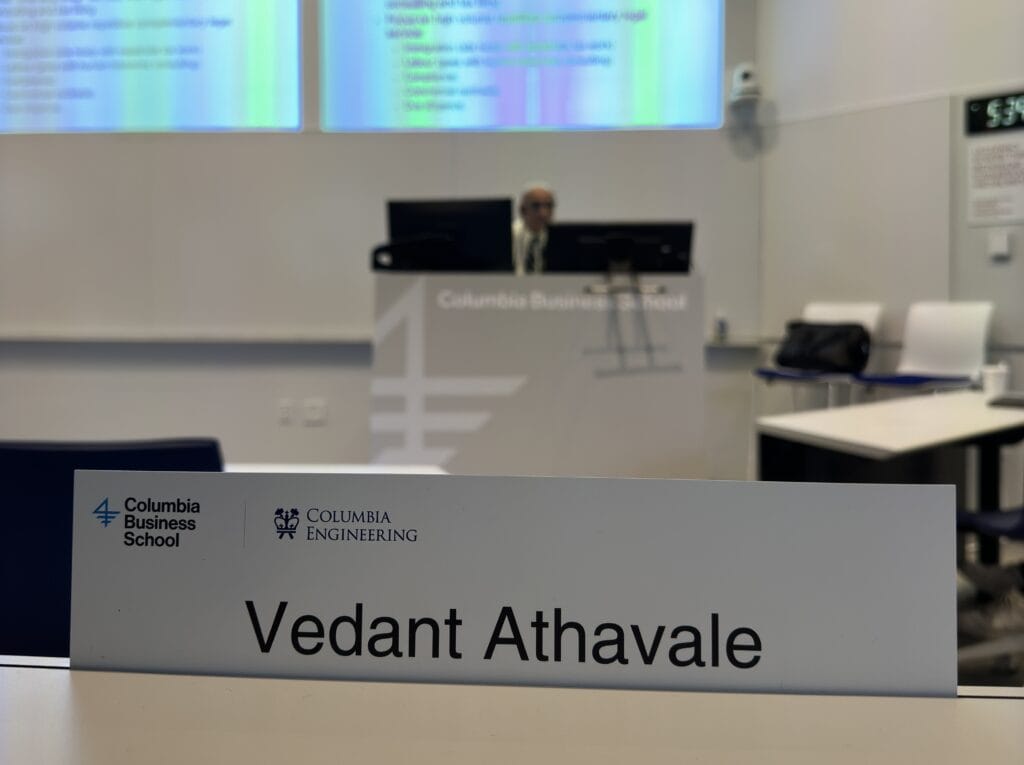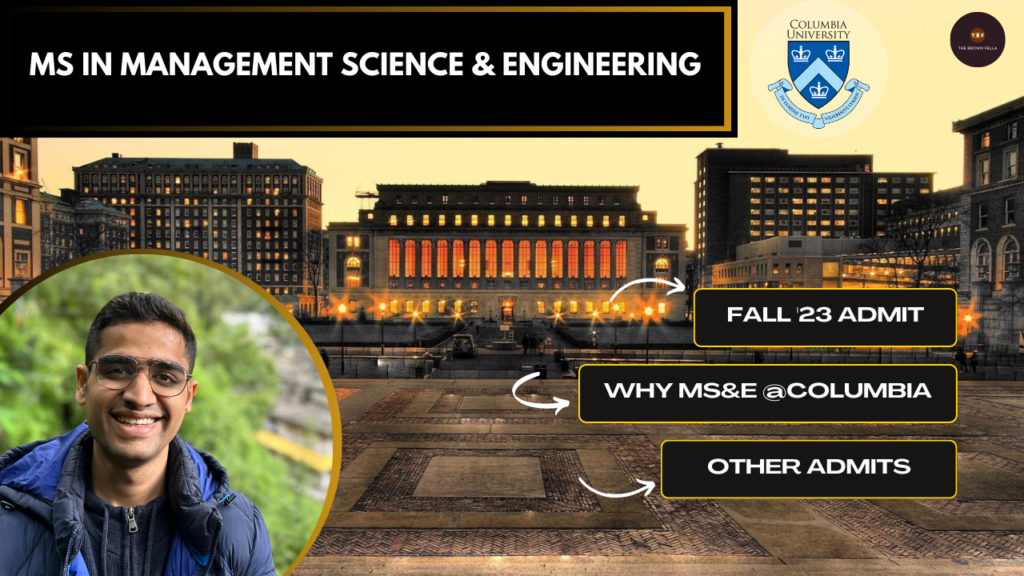MASTER'S AFTER COLLEGE v/s AFTER EXPERIENCE
It's all about wise decision-making at the correct hour!

Well, well, well, it looks like someone has reached a crossroads and is a new addition to the Robert Frost Dilemma Fanclub! Deciding between a master’s degree right after college or after some time in a job, huh? Don’t worry, it’s not like you’re choosing between two roads as Robert did. You can always travel back and forth, experiment, and take both roads! I feel there is no one right time for higher education. It’s not some age-based goal. You may pursue it in your 50s as well! But, that’s not what we are discussing today.
Either option has its pros and cons, but let’s put it this way: a master’s degree means more studying, more school, and more debt, while a job means more work, more responsibility, and more income (hopefully!) So, what shall it be? Education or Job? Let’s understand more about it from my perspective. It’s going to be a long read, but be assured, it’s worth your time!
1. About Me & My Boat
First of all, who am I? Well, I am someone who was in the same boat as you last year! I was in the penultimate year of my undergrad in Electronics and Telecommunication Engineering. I was confused about whether to go for a graduate degree right after my undergrad or if should I get some years or at least months of experience. I reached a point where I decided that I would like to pursue a graduate degree in a techno-managerial field that spans domains like Ops Research, Data Science, and Management. But when? That was still to be answered.
I had previously worked as an AMC Software Dev intern during the winter and as a Data Science & AI consultant intern during the summer of my sophomore and junior year respectively. These helped me get clarity about what I wanted to do ahead. As an engineer, I was trained well with Mathematical subjects that an OpsResearch person will need and my internships gave me a sneak peek into the corporate world. But it wasn’t enough I felt.
I finally decided that I have to work in the industry for a couple of months if not years and get to more about the industry before I commit myself to in-depth and intense graduate coursework. Well, if you have already searched about me on LinkedIn, you might know that I haven’t joined a graduate program yet, but will hopefully be joining soon. I am in the transition phase from a Corporate Worker to an incoming Graduate School Student. If you are reading this quite later, you can always check my updated profile status on LinkedIn (and don’t hesitate to ping me).
Now, I guess, enough of this. Let’s jump to some real-life examples that will help you get a better idea about what we planned to discuss in this blog post.
2. Are your basic Goals set? Do you know where you stand?
A.) Aspirations
First things first, let’s talk about having your aspirations and goals on a basic level set. Picture this: you’re driving without a destination in mind. Where are you really headed? It’s like trying to choose between hiking up a mountain or diving into the deep sea without knowing which adventure suits you better. So, take a moment to reflect on what really excites you. What gets your heart pumping? Is it delving deeper into a particular subject, becoming an expert in your field, or making groundbreaking discoveries? Or maybe you’re eager to get your hands dirty, gain practical experience, and start making a difference in the real world. Having a clear sense of your passions and interests will help you shape your future direction.
B.) Clarity
Now, let’s chat about clarity – the good ol’ pal who helps us make sense of things. When you’re faced with a big decision like this, it’s crucial to have some clarity about what you want to achieve. Are you aiming for a specific career path that demands a master’s degree, or do you see yourself thriving in an industry where experience speaks louder than degrees? Research the job market, talk to professionals in your desired field, and understand what employers value most. This will give you a solid foundation to assess whether a graduate degree is a prerequisite for your dream job or if you can dive right into the working world.
C.) Finances
Ah, finances – the real-life boogeyman that sneaks up on us all. Let’s face it, my friend, money matters. Pursuing a graduate degree often comes with a price tag – tuition fees, living expenses, and possibly putting your income on hold. It’s essential to consider the financial implications and weigh them against the potential benefits. Will that advanced degree provide you with a higher earning potential down the road? Can you secure scholarships or part-time work opportunities to ease the burden? Crunch the numbers, evaluate the return on investment, and think about how it aligns with your short and long-term financial goals.
3. Let's address the elephant in the room!
What if you don’t have this basic clarity about your aspirations and goals just yet? Don’t worry, my friend, it’s more common than you think! Take a step back and focus on self-discovery. Engage in activities that ignite your curiosity, explore different fields, talk to professionals, and even consider taking on internships or volunteer work to gain exposure. Sometimes, clarity comes through experience and trying out different paths. Give yourself the space and time to discover what truly lights your fire.
Remember, my friend, life is a journey, and these decisions are never set in stone. It’s okay to pivot, change your mind, and explore new avenues along the way. The most important thing is to make a decision that aligns with your core values and sets you on a path of growth and fulfillment. So, take a deep breath, trust your instincts, and remember that you’ve got what it takes to design your own future, no matter which path you choose.
4. How a job experience can make or break your application?
Work experience can/may be a game-changer when it comes to your graduate school application. It showcases your practical skills, real-world application of knowledge, and maturity as a professional. However, the importance of work experience may vary depending on the university or program you’re applying to.
In some cases, work experience is highly valued and can make a significant impact on your application. Let’s take a look at a couple of examples of top universities/programs where job experience is expected (University Websites are the real gems. They have the only perfect info, and no other website):
E.g. I.) MBA Programs at the leading B-Schools (In the USA v/s India)
Many prestigious business schools, such as Harvard Business School, Stanford Graduate School of Business, Columbia Business School, and Wharton School of the University of Pennsylvania, prioritize work experience in their MBA admissions process. They typically look for candidates with several years of professional experience to ensure a diverse and enriching classroom environment. This requirement allows applicants to bring their real-world experiences into the classroom, contributing to valuable discussions and peer learning.
In India, the prevailing trend does not emphasize the necessity of work experience for admission to business schools. Consequently, a significant majority of Indian students opt to pursue an MBA directly after completing their undergraduate studies. While work experience is not a compulsory requirement for admission to IIMs (Indian Institutes of Management), it undeniably enhances a candidate’s profile, providing them with a competitive edge. However, prospective MBA students without prior work experience need not be concerned, as they still possess a favorable chance of securing admission at an IIM.
Hence, checking out the work experience requirements of your program from the university website should be your priority. If it’s needed, you don’t have much choice but to make yourself eligible to apply. Otherwise, there’s no one stopping you!
E.g. II.) Professional Programs in Law & Medicine
Universities offering professional programs like Juris Doctor (J.D.) or Doctor of Medicine (M.D.) often place a strong emphasis on relevant work experience. For instance, law schools like Yale Law School, Columbia Law School, and Harvard Law School look for candidates who have demonstrated their commitment to the legal field through internships, clerkships, or relevant professional roles. Similarly, medical schools like Johns Hopkins School of Medicine, or the University of California, San Francisco School of Medicine value candidates with practical experience in healthcare settings, such as volunteering at hospitals or conducting medical research.
E.g. I.) Programs where work experience might not be a necessity
Research-Focused Graduate Programs:
Many research-intensive graduate programs, such as Ph.D. programs in the sciences, prioritize academic achievements and research experience over professional work experience. These programs often value applicants who have demonstrated exceptional academic potential, research skills, and a strong passion for the field. Institutions like the Massachusetts Institute of Technology (MIT) or California Institute of Technology (Caltech) typically focus more on research experiences, academic publications, and letters of recommendation from professors.
Early Career Master’s Programs:
Some universities offer specialized master’s programs designed for students who are early in their careers and have limited work experience. These programs, such as Master of Engineering (M.Eng.) or Master of Public Administration (MPA), are often tailored to provide a deep understanding of a specific field or industry. They place more emphasis on academic achievements, relevant coursework, internships, and extracurricular activities, as they understand that applicants may not have had substantial work experience yet.
Remember, these examples are not definitive and can vary among institutions. It’s essential to thoroughly research the admission requirements and preferences of your target universities and programs. While work experience can be a valuable asset, don’t be discouraged if you lack extensive professional experience. Each program evaluates candidates holistically, considering various aspects such as academic performance, personal statements, recommendation letters, and other accomplishments.
My upcoming blog posts will be about why I chose the field of MSE or in general a techno-managerial field for my graduate education. Hope the article you just read has helped you. For any doubts, please comment on the article below. Allow me some time before I revert. And don’t forget to connect with me over LinkedIn!






Well structured and highly informative blog, Vedant! Good going 🙂
Thanks a lot, Abhijeet! Will try posting more such content! 😀
Hey Brazil! Let’s check out Bet86br. The site is decent and functional. I love the easy layout and selection so it’s easy to find what you need. Check it out here bet86br.
Wjpeosph, is funny on there. It offers many type of game. Gameplay is smooth, and the site’s well-optimized. This wjpesoph
Looking for that classic casino vibe? 777casinogames has you covered. They’ve got all the slots and table games you know and love. Feels just like Vegas! Try your luck at some slots at 777casinogames!
Just signed up with tojaybetgame and so far so good. The interface is clean and easy to navigate. Definitely worth a shot if you’re looking for a new spot to bet. Find them here: tojaybetgame.
2bong1gom? Okay, I’ve been playing on 2bong1gom and I haven’t been disappointed. Navigating the site is a breeze, and deposits/withdrawals are quick. Check them out: 2bong1gom
Just downloaded the voxcasinoapp and it’s pretty slick! Runs smooth on my phone, plus the game selection is legit. Seriously, check this out people! Download it here: voxcasinoapp
I’m a big fan of plus777vip! The VIP perks are amazing, and they really take care of their players. Feeling spoiled here! Join the VIP experience: plus777vip
Checked out 22betprediction. Not super impressed, but predictions seem kinda accurate. So yeah. See if it’s for you 22betprediction.
Heard murmurs about axiebet888. Tried it. Its actually not too bad. Good spot for a quick bet here and there. Checkout axiebet888 when you get a chance.
Yo, check out bj88casino! Solid games and decent payouts. Been playing there for a bit now. Worth a shot if you’re looking for a new online casino. Seriously! bj88casino
What’s the buzz with ‘vn123’? Everyone’s talking about it. Gonna give it a look and see what all the fuss is about. Intrigued, to say the least: vn123
Yeah, I’m talking about horse racing on Nesine.com, it’s easily my favorite thing. Seriously, try if you like horse racing: nesine.com at yarışı.
Anyone have any lucky numbers for ‘nesine.com at yarışı’? I could really use a win! Check it out here: nesine.com at yarışı